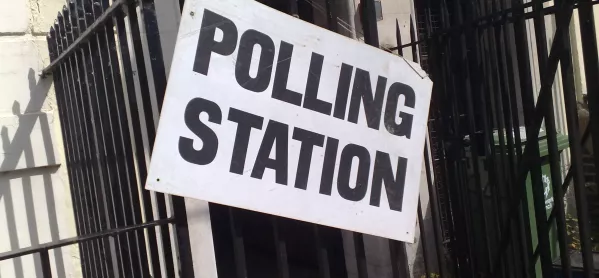- Home
- Headteacher board elections: What you need to know
Headteacher board elections: What you need to know

The Department for Education is poised to announce the results of elections to England’s eight headteacher boards (HTBs) before the start of the autumn half-term.
The HTBs are a key part of our education system and help make decisions that will affect schools across the country for generations to come.
But despite their importance, they are little known and little understood, so here is a quick run-down of what they do, why they matter, and what to look out for when the election results are published.
What are the headteacher boards?
They are an important part of the system that oversees the thousands of academies and free schools across England.
They were set up in 2014, and their job is to advise and challenge the eight regional schools commissioners (RSCs).
These RSCs are the senior civil servants who make decisions including which schools can become academies, who runs them, what happens if they fail, and which applications to open new free schools are approved.
And they have increasing influence over non-academies, too. Under last year’s Education and Adoption Act, they can issue warning notices to maintained schools, and decide the fate of “coasting” schools.
Who sits on them - and how are they chosen?
Each board has a mix of members - some elected, some appointed, and some co-opted.
They all have four elected members. Only serving or recent heads of top-rated academies are allowed to stand in the election, and all current leaders of academies are allowed to vote.
The election rules ensure that at least one candidate from the primary sector, and one from secondary, is among those elected.
The RSC can appoint two additional members, and the RSC and HTB can also ask for permission from the education secretary to co-opt up to two further people.
Since 2014, most HTBs have co-opted more people from academy trusts, although some have brought in people with financial or legal expertise.
Click here to see the current membership of each headteacher board.
How have the elections been going?
This is the second time that elections for the HTBs have been held, and polls closed on 21 September.
The process has not been without concerns, which have led to some people to question its credibility.
Despite a huge rise in the number of academies since the 2014 elections, the number of people who decided to stand has actually fallen. In the North of England, the DfE was only spared the embarrassment of not having enough candidates to fill the places by the fact that all four existing members stood for re-election.
See the full list of candidates here.
Although the HTBs have increasing powers over non-academies, only academy leaders are allowed to vote, leaving the vast majority of schools that are affected by their discussions disenfranchised.
There have also been concerns about technical problems surrounding the internet-based voting system.
What do people think of headteacher boards?
The government says that the headteacher boards harness the local knowledge and expertise of leading academy leaders to improve the decision-making process.
But critics have raised concerns about the potential for conflicts of interest, since all elected members - and often those appointed or co-opted - have close ties to some of the schools and academy trusts their HTB oversees and makes decisions about.
The DfE published a record of interests here and sets out the rules around conflicts of interest here.
There are also worries about the lack of transparency in the system. The HTBs publish brief records of their decisions, but a Tes investigation has shown that vastly more information is withheld from the public.
Both education secretary Justine Greening, and national schools commissioner Sir David Carter, who oversees the system, have told Tes they want to see more transparency.
What should I look out for in the election results?
The government will be keen to portray the HTB elections as a success and boost the credibility of the HTB system.
This is especially so given that fewer people chose to stand in the election this time around, and three-quarters of people elected in 2014 decided not to stand again.
One key test will be how many people voted in the election. Last time, the government said there was “a turnout of almost 40 per cent”.
It will also be interesting to see who is elected.
There have been suggestions that candidates from church academies may have an advantage in the election, if all the church schools in their region vote as a block to elect them.
The same applies to academy trusts with large concentrations of schools in a particular region: will their candidates fare better than those from stand-alone academies, or smaller academy trusts?
Also, watch out for how well different sectors are represented. Currently, there are twice as many primary academies as secondary academies, so will candidates from primary schools be more successful in the ballot? And will candidates from the much smaller SEND sector get a look in?
What happens after the election will be equally revealing.
Will the RSCs and HTBs recruit people from under-represented sectors to serve on the boards, and will they end up appointing unsuccessful candidates, or people from prominent multi-academy trusts that did not secure a place at the table through the election process?
Keep reading for just £1 per month
You've reached your limit of free articles this month. Subscribe for £1 per month for three months and get:
- Unlimited access to all Tes magazine content
- Exclusive subscriber-only stories
- Award-winning email newsletters



